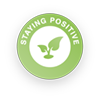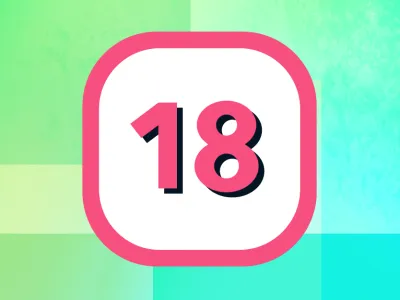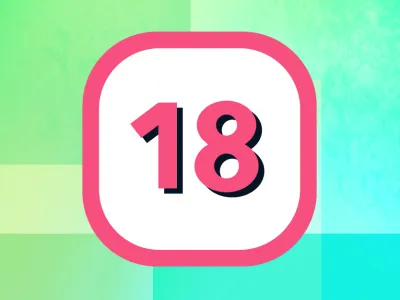
Your Questions, Answered: LGBTQ+
Include this article in your Skills Builder Journal. It could help you develop... 
This month, as part of our Ask Us Anything series, we teamed up with our friends at Stonewall - an LGBTQ+ charity who are here to let all young lesbian, gay, bi and trans people (as well as those who are questioning) know they're not alone - to answer your questions on anything LGBTQ+. We put together a list of the top questions you asked and sent them over for their responses. Here’s what they had to say:
How come there isn’t more support for LGBTQ+ students in secondary schools across the UK?
Lots of secondary schools are supporting their LGBTQ+ pupils; from our School Report (2017), we know that since 2007 schools are more likely to say that homophobic bullying is wrong and pupils are more likely to be taught about LGBTQ+ issues in school. But there’s clearly more work to be done: nearly half of LGBT pupils (45 percent) are bullied for being LGBTQ+ at school, and half of trans pupils (64 percent) are bullied at school for being trans (School Report 2017).
A lot of this is down to the legacy of Section 28 of the Local Government Act, a piece of legislation which came into effect in 1988. This legislation forbid local authorities to ‘promote homosexuality’ or permit maintained schools to teach ‘the acceptability of homosexuality’. What this meant was that schools couldn’t teach about LGBTQ+ people and couldn’t provide advice, information or support for pupils who were LGBTQ+ or thought they might be – it would have been against the law to do this. Though Section 28 was repealed in England and Wales in 2003 (and 2000 in Scotland), lots of school staff haven’t been trained in how to talk about LGBTQ+ people in school, or how to support LGBTQ+ young people, and therefore don’t feel confident doing this, even when they really want to. We have come a long way, but there is much further to go.
There are lots of ways teachers and schools can support LGBTQ+ young people: for example, schools can set up an LGBTQ+ group for pupils. There’s lots of organisations that help schools do this work well. Stonewall has some useful training and resources for teachers. Some handy guides for secondary school staff include: An Introduction to Supporting LGBT Children and Young People, Staying Safe Online, Ten steps to tackling homophobic, biphobic and transphobic bullying and language. Feel free to share these links and resources with your school, or ask a teacher to contact education@stonewall.org.uk if they have questions.
Why are trans people always overlooked? Trans People Matter.
In many ways trans people, and especially trans women of colour, have been at the forefront of LGBTQ+ activism since the very beginning. Yet progress on LGBTQ+ rights hasn’t been equal for all members of the community, and some groups have historically been underrepresented and overlooked: we can see that LGBTQ+ people of colour, trans people, and disabled LGBTQ+ people all experience profound exclusion and oppression today. The Stonewall School Report (2017) showed that seven in ten LGBT pupils (68 percent) report that their schools say homophobic and biphobic bullying is wrong, but just four in ten report that their schools say transphobic bullying is wrong. This isn’t fair: there is much work to do before all LGBTQ+ people are free to be themselves and able to achieve their full potential.
All LGBTQ+ people deserve to feel free to be themselves. Cis (non-trans) people can help by being active allies to trans people, and encouraging other cis people to do the same. In schools, this could look like asking schools to mention tackling transphobic bullying in their anti-bullying policies, and ensure staff are trained to tackle transphobic bullying. It also extends to reporting transphobic bullying online and then of course to celebrating trans people, stories and communities wherever you can, not just in LGBTQ+ History Month.
How do I support my friend who's transitioning?
Start by asking them how they’d like you to support them! They might have specific things they need help with, or they might just want you to be there for them.
If your friend has changed their name or the pronouns that they use, practise using them – and make sure you’re using the right name and pronouns for them even when they’re not around. If you make a mistake, correct yourself and move on.
Ask them if they’d like you to correct other people if anyone else uses the wrong name or pronoun. Remember that your friend might not be out as trans to everybody in their life: you don’t want to accidentally out them, so it’s important to check with them whether it’s okay for you to share their name and pronouns with other people, or tell other people that they’re trans.
If you’re in school, think about making your school more supportive of trans young people. Good allyship can start with some of the pointers in the previous question, but crucially, it’s about being there for your friend and making sure you know what they need from you.
What can we do as LGBTQ+ individuals to help the rest of the community?
Great question! There are many different ways to be an activist or to campaign for LGBTQ+ rights. You don’t have to run a national campaign, but if that’s what you want to do - amazing. If you’re in school and you want to set up an LGBTQ+ student group, that's being an activist!
We also need a diverse range of LGBTQ+ activism and ideas, particularly led by people whose voices haven’t traditionally been heard or represented, like trans people and POC. If that’s not you, look at how you can support trans people and LGBTQ+ people of colour – follow activists, campaigning groups and grassroots organisations on social media and keep an eye out for the ways they are asking followers to support their work; sign petitions and share with people in your life to encourage them to sign; donate to fundraisers when you can, or boost fundraising efforts so that people in your circles can donate; and have conversations with other people in your life to encourage them to get involved.
Why does LGBTQ+ get a whole month and soldiers only get a day?
It doesn’t have to be either or – lots of soldiers are LGBTQ+ themselves, so we can celebrate LGBTQ+ soldiers every day of LGBTQ+ History Month, and again on Armed Forces Day in June as one part of the celebration of all soldiers. Both awareness events – the day and the month – are there to remind us of people and stories that we might otherwise overlook.
It can be difficult to find the stories of LGBTQ+ soldiers, because up until the year 2000, LGBTQ+ soldiers were not allowed to serve openly in the military – they had to keep their gender identity or their sexual orientation a secret, and could be banned from service if anyone found out. LGBTQ+ soldiers campaigned to have the ban lifted, so that nobody would ever again have to choose between being a soldier and being open about who they are and who they love. This is one example of lots of ways in which LGBTQ+ people have been discriminated against throughout history – part of the purpose of LGBTQ+ History Month is to raise awareness of the stories that have been hidden away or suppressed, the stories that we never got to read about in the news or learn about at school the way we learn about other groups and other parts of history.
How can you be sure of your sexuality, I always question myself. I don’t know if I should know already?
It’s okay to question yourself and to be figuring it out, no matter how long that takes you. For some people, sexual and romantic orientation and gender identity aren’t a destination but a journey: some people will be really sure how they identify and what words they want to use to describe themselves; some people might find that their identity changes a few times during their lifetime; and some people might never have a fixed idea. There is no one way to be LGBTQ+ or right way to come out, everyone’s story is different and everyone’s story is valid! You’re doing great and it’s okay that you don’t have it all figured out.
Why do people not realise that LGBTQIA+ rights are human rights?
Up until 2003, Section 28 meant it was against the law to talk about and celebrate LGBTQ+ people in schools! This law came into effect because, at the time, there was huge social stigma around being LGBTQ+ and, because people were never allowed to learn about LGBTQ+ people and stories, it was really hard to break that stigma down. It’s been eighteen years since the repeal of Section 28, and the visibility of LGBTQ+ people in the curriculum, in media and in public life has come a long way since then. There’s been an increase in visibility and in LGBTQ+ people being able to share their own stories, along with positive changes in anti-discrimination laws that protect LGBTQ+ people at school and work (like the Equality Act 2010), all of which is really helpful – but this has happened in a relatively short space of time, and it can take a while to shift social attitudes. Sometimes, there is a false perception that increasing rights for one group of people takes away rights from other groups. That can make people anxious, worrying that their lives will get worse if more rights and protections are given to others. However, equality means just that: the same rights for all people. An equal society means everybody can thrive.
Is it possible to be biromantic but not bisexual?
Yes! For some people, sexual orientation (who they might be physically attracted to or want to have sex with) and romantic orientation (who they might be romantically attracted to and fall in love with or want to have a relationship with) are different. So for some people, they might be sexually attracted to some types of people and romantically attracted to other types of people. It's absolutely possible to be biromantic but not bisexual - and the other way around, too. Bisexuality includes a wide range of different experiences and orientations. Your bi experience is just as valid as anybody else's!
What can non-LGBTQ+ people do to make the community feel better/accepted?
Being an active ally is the best way to help make the world a more accepting place for LGBTQ+ people. If you have LGBTQ+ friends, family or loved ones, have a chat with them about how they’d like you to support them – some people might have specific things they want your help with, whereas some people will just want you to be there for them as a supportive, accepting friend or relative. To help make the world safer for LGBTQ+ people, find safe ways to challenge LGBTQ+ language when you hear it being used: report homophobia, biphobia and transphobia using the reporting functions on apps, gaming platforms and social media platforms; challenge homophobic, biphobic or transphobic jokes made by friends or people you know; and tell a teacher or trusted adult if you witness homophobic, biphobic or transphobic bullying at school. If you witness someone being harassed or intimidated in public, don’t put yourself in danger by confronting the perpetrator – something you can do instead is get help for the victim, or if you can, speak to them and offer to help them get to a safe place. Support LGBTQ+ activists, organisations, and charities by following their social media pages, sharing their campaigns, donating to their work if you can or sharing fundraising asks with your circles. You can also support the work of LGBTQ+ musicians, artists, writers and creatives – engage with their work, buy their books/albums/art as gifts for friends and family, and share their social media posts. Platforms like Patreon can help you become a regular monthly supporter for artists and educators, which can help them sustain their work – this is particularly helpful for artists and creators who are growing their audience.
How do I become more accepting of myself?
Be patient with yourself. Acceptance comes with time, and everybody will have periods of time throughout their life where they find it harder to accept themselves for who they are. Try not to put too much pressure on yourself to love who you are right now, or to feel totally happy with yourself – and try not to beat yourself up if you feel confused, conflicted or frustrated with yourself. Try aiming for neutrality: perhaps you don’t feel the way you want to feel right now, but tell yourself that that’s okay, and you’ll get to where you want to be one day. If you’re LGBTQ+, connecting with other LGBTQ+ people in a safe way can help you embrace this part of who you are. You could try a youth group or a school LGBTQ+ group. If you’re not ready for that, books, movies, music and TV can be a great way to explore the community you’re a part of. Lots of other people have felt the way you do now, but have come to accept and love themselves over time. Remember that talking to someone you trust and sharing how you feel can be really helpful if you’re stressed or feeling low – or even if you’re just feeling a bit uncertain. Reach out to a friend or chat to a teacher or youth worker.
How do I talk to my grandparents about my identity in a way they'll understand?
Talking to family about your identity, especially if they’re a bit older, can feel a bit daunting. Your grandparents may not be familiar with the language you use to describe who you are, and they may not know other LGBTQ+ people – that can make it feel tricky to have these conversations. What your grandparents will understand is that you’re telling them something that’s really important to you. They’ll know that you’re sharing a part of yourself with them and that this is something you want them to understand. If you can, it could be helpful to let them know that they can ask you questions if they need to – if you don’t feel you can offer that yourself, maybe a close friend or a family member could step up as an ally and be the person who answers questions. They might need a little bit of time to think about what you’ve told them, so the questions might come later. You could emphasise to them that you’re still their grandchild, and that this is a chance for them to get to know you better. If there are celebrities or public figures who identify in the same way you do, you could introduce your grandparents to their work so that they can see other examples of LGBTQ+ people. Your family’s understanding can grow and change over time, even if they’re confused or unsure when you first tell them you’re LGBTQ+. Remember that coming out should be your choice: the only person who should determine if you come out, when you come out and how you come out is you!
How do I explain to the school peers that I'm transitioning?
For your school, find a teacher that you trust and tell them. They should respond by listening to you and helping you work out what you want to happen next – including when and how to tell the other staff, your peers and the wider school, if that’s what you want. We have lots of resources and support for your school if they need help figuring this out.
You might want teachers or school staff to inform other students that you’re transitioning, or you might want to do this yourself. There’s no right way to come out, the most important thing is that you feel comfortable and that you’re able to go at your own pace.
In terms of coming out to friends, you might want to come out to a couple of friends that you trust first – perhaps you could ask your most trusted friends to help you come out to other people. Finding a group of local LGBTQ+ peers might be great to speak to others who’ve faced similar situations: try this tool from the Proud Trust.
I would love to come out to my family but I don't think they will believe me...HELP!!!
There is no right way to come out, and even if they don’t believe you, we believe you. You could join a local LGBTQ+ youth group so you have other peers to talk to about coming out to your family, and see how they found it with theirs if they are out. Remember that your family’s understanding can grow and change over time, so even if your family members are confused or surprised at first, this is just an initial reaction and doesn’t mean they’ll always feel this way. Sometimes people need to learn more about what being LGBTQ+ means, or just need some time to absorb what you’ve told them. Remember that coming out is your choice: you get to come out if you want to, when you want to and how you want to.
My non-binary friend isn't out but I don't want to misgender or expose them to others, what should I do?
You can ask them what they feel most comfortable with you doing – if we’re in front of X group of people and they misgender you, do you want me to correct them? Would you just like me to use the pronoun that you’re comfortable with when I refer to you in front of them? Should I use your name only, and avoid pronouns? Then you can check in with them, because it might change over time. Just take it at their pace, it’s their decision if and when they come out.
If you want to learn more about LGBTQ+ history, why not check out our blog series LGBTQ+ History By The Decade, where we discover the fight for rights, progression, and celebrations of the LGBTQ+ community in the UK: The 1980s, The 1990s, The 2000s and The 2010s. And, take a look at Stonewall’s website for information, support and resources.



